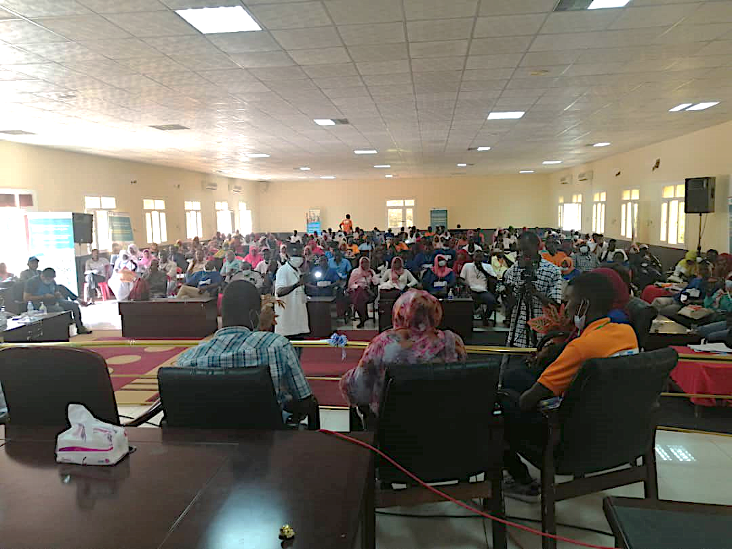Recovering From Conflict: Integrated Support for Most Vulnerable Communities in South Kordofan
Duration: February 2020– August 2023
Budget: US$5,119,980 (UNTFHS: $1,772,759; Pooled Funding: $3,347,221)
Implementing Agencies: UNMAS (lead), UNOPS, FAO, IOM, WHO, UNICEF
Sudan is at a pivotal moment of change on its journey to political and socio-economic recovery. During this period, the international community has a key responsibility to support the government and people of Sudan with coordinated responses that promote peace, address multi-dimensional insecurities, empower people and leverage opportunities on the ground. In this context, the UN Country Team in Sudan, with support from the UNTFHS, is responding to the complex challenges in the state of South Kordofan that has been at the center of armed conflict between the Government of Sudan and opposition groups in the past.
The key objectives of the programme are to: (i) increase safety for people while improving access for humanitarian and developmental actors; (ii) restore human dignity and self-sufficiency for vulnerable populations; (iii) strengthen social cohesion amongst targeted communities; and (iv) promote the human security approach throughout the programme’s implementation.
KEY MATERIALS
Programme Summary
2022 Global Protection Thematic Forum Report
Fact Sheet
IOM Article: Youth Consultations Forum Concluded in South Kordofan State
Voices of Youth in Sudan’s South Kordofan
The programme focuses on the promotion of community cohesion through nationally supported and community-based initiatives that aim to foster collaboration and promote peaceful coexistence.
Based on an inclusive and participatory approach, displaced persons, host communities, state and local authorities come together to address the root causes and drivers of the conflict. Building on already existing mechanisms and establishing new community structures they address individual and communal grievances, prioritize needs, enhance collective outcomes, and reduce future challenges.
By providing support across the humanitarian-development-peace nexus, communal dialogues and collaboration are combined with civic and basic education as well as vocational training in mine clearance, basic healthcare, water management and small scale farming designed to return to daily life and reduce the allure of recruitment by armed parties, thus preventing the potential for future conflicts.
Focusing on synergies between different interventions, the activities of six UN agencies, in partnership with national and local partners and communities, leverage diverse capacities to address the interconnected deficits in personal, food, economic, health, community and economic insecurities.
Through an integrated multi-sectoral human security approach, the programme removes landmines, strengthens health systems, expands livelihoods, increases access to WASH and basic services, improves education, and protects and empowers communities and returnees to reintegrate peacefully and sustainably.
In addition, the programme pays particular attention to the needs of people with disabilities, especially victims of landmines and explosive remnants of war through the provision of medical and socio-economic support and their full recovery and reintegration into society.

